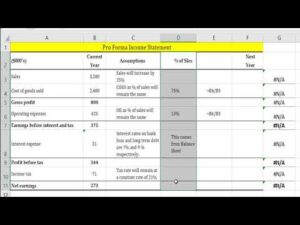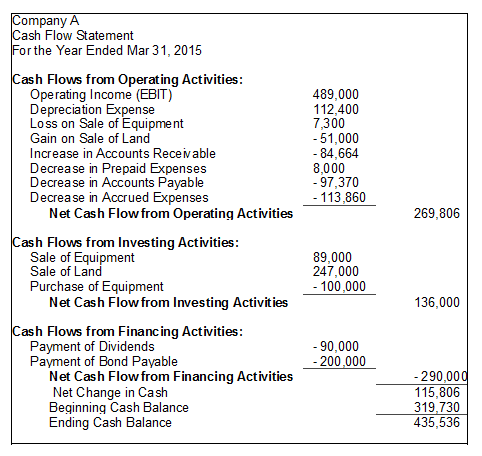
Bookkeeping becomes more difficult when business transactions are lumped together with personal activity. Keep all cash, credit card, and other financial activities separate. Maintaining bookkeeping tasks is essential for the stability and success of small businesses. With so many moving pieces (including assets and liabilities, and income and expenses), small business owners must stay on top of it all. Your new business idea has you excited, but have you spent much time thinking about how you will manage your business finances?
Use Find & Select to streamline formatting
Influencers and content creators have carved out their niche in the dynamic digital industry, becoming important marketing actors. Their influence extends to various social networks, creating trends, establishing market flows, and forming colossal online communities. https://www.intuit-payroll.org/how-much-does-it-cost-to-replace-rear-differential/ However, behind the aesthetic posts and significant partnership fees is often a complex financial situation that requires an astute approach. Below, we will discuss all the details of accounting for content creators and tell you how to get your finances in order.
Manage financial statements and documents
You should also browse the chart of accounts and make sure it’s organized in a way that makes sense for your business. Are you one of those small business owners who just love poring over spreadsheets? Yes, your business’s books are a scorecard of how well you’re doing—but if you’re not a “numbers person,” doing your bookkeeping may sound as appealing as a root canal. Still, other business owners mean to go over their business finances but get caught up in the day-to-day and never get around to it.
- At tax time, the burden is on you to show the validity of all of your expenses, so keeping supporting documents for your financial data like receipts and records is crucial.
- Bookkeepers might also have degrees in accounting, but most have either technical certifications or on-the-job experience.
- When it comes to budgeting for bookkeeping, the difference hinges on whether you hire or manage using software tools.
- Admiring your profits is always fun, but going over ledgers and calculators?
- Bookkeeping is how businesses, entrepreneurs, and decision-makers monitor a company’s overall financial health and activity.
- Quick note—every business is unique, so before you get started, it’s always best to speak with a professional who can help you decide what’s best for your business.
Accounting Documents Library
It includes importing and categorizing transactions properly, reconciling these transactions and making sure they’re recorded according to your entry system and accounting method. When customers don’t pay on time, your business’s cash flow can dry up fast. Pay attention to when your receivables are due and contact late-paying customers right away to nudge them along.
How long should you keep records for bookkeeping?
Once you’re using the software, feel free to call or email us anytime for QuickBooks support. If you’re not sure how to enter certain transactions, need to troubleshoot a problem, or just have a quick question, don’t hesitate to contact us. If you suspect something is off in your data, but can’t locate the problem, you can also send us your file. Ramp is a leading-class software that makes financial reporting headaches a thing of the past.
Accounting ledger
Our innovative, analytical insights will make sense of your finances, lower your tax exposure, and increase profits so your business can grow. These small business bookkeeping tips will help you be successful with processing your day to day accounts and office management. Hiring a professional bookkeeper or accountant, even for just a few hours per week or month, can make a big difference. The work of a bookkeeper and accountant overlap, though a bookkeeper is mainly concerned with recording and classifying income and expenditures. An accountant might also file taxes and help you with strategic planning.
Plus, with the cloud, your critical financial data is backed up safely off-site. Start by deciding on the system you want to use, whether it’s an online program, paid software or a spreadsheet. Next, set aside a dedicated time either weekly or biweekly to review your bookkeeping, reconcile transactions and https://www.accountingcoaching.online/ complete necessary data entry. Finally, you’ll want to decide how all receipts and documents will be stored. You can either keep hard copies or opt for electronic files by scanning paperwork. The cash-based accounting method is the simplest method, and makes it easier to track your cash flow in real time.

This type of account is designed for everyday use and allows businesses to make unlimited deposits and withdrawals. Typically, checking accounts also come with 6 strategies to make the grant proposal submission process less stressful a debit card for easy access to funds. If you’re a busy small business owner with a million things to do, it’s easy to let bookkeeping fall by the wayside.

Computer upgrades, equipment replacement, and tax deadlines shouldn’t come as a surprise. Larger capital expenses often come up during slower months so plan ahead to avoid a cash crunch. You might be tempted to place bookkeeping and accounting at the bottom of your to-do list, but following the right procedures can set your business up for success. As a busy business owner, it can be easy to lose track of time and miss deadlines. To ensure you protect your accounting records, consider keeping both a paper and paperless version. That way, you have a backup in case accounting information is destroyed, misplaced, or lost.
Use tools to help you set a budget and manage your assets to better oversee your operational costs. Doing so also alerts you about discrepancies you want to focus on. It’s important to do a detailed analysis to avoid missing signs that expenses are building up. If they creep up too heavily, it can take much longer to correct them and prevent losses in the long term. But you need the receipts for expense categorization, documentation for deduction support, and more. Also, well-documented and organized receipts can significantly help during audits.
